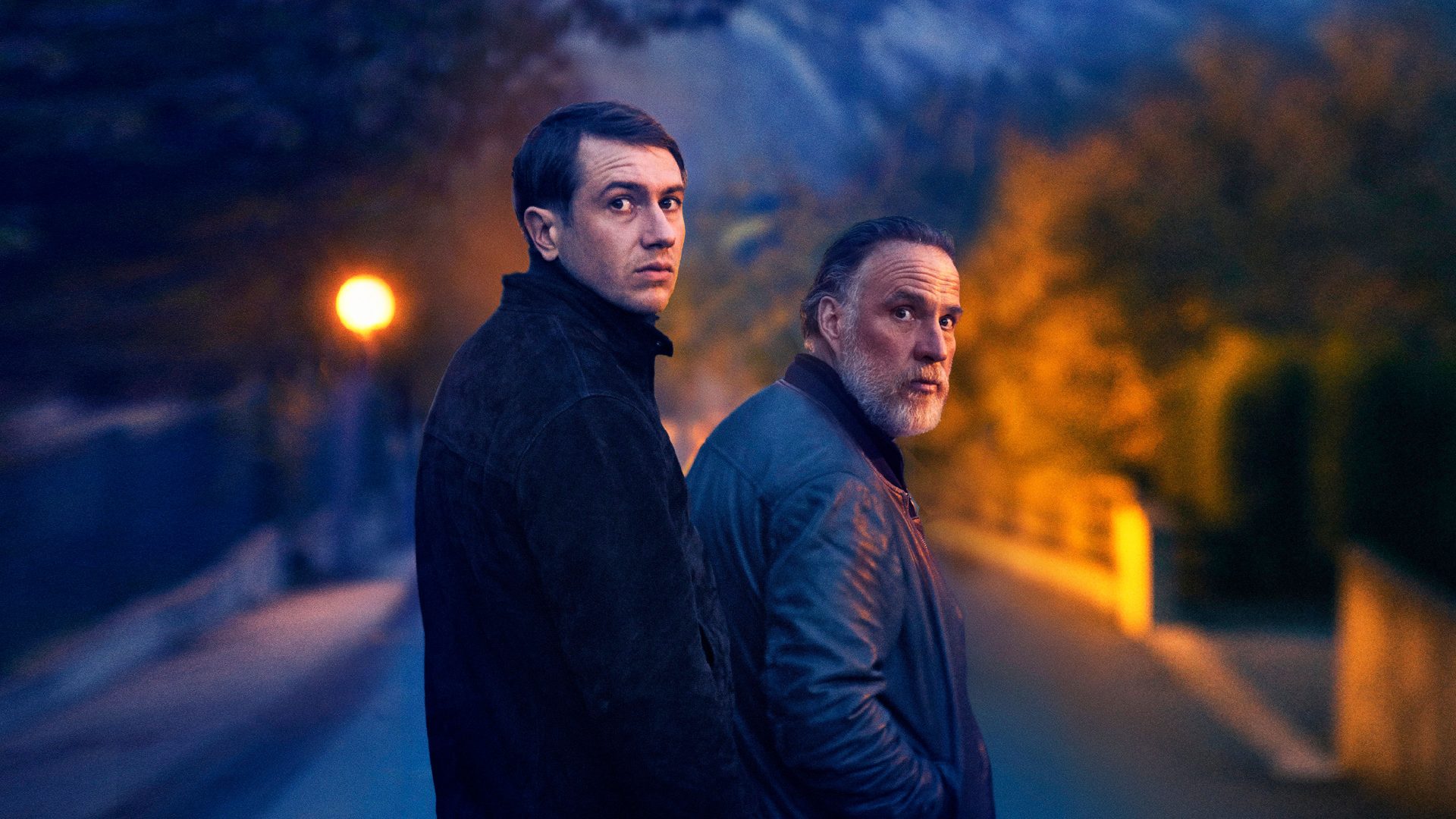On a Soho stroll the other day, I bumped into the celebrated British film-maker Stephen Frears. “What’s good, anything I should be watching?” he asked in his usual gruff greeting to me. As it happened, I did have a good
one for him that I’d just that afternoon come from seeing. “Right up your
street this one,” I said. “Tight French police procedural, nothing fancy, but
laser-sharp, existential.”
His eyes lit up. “Hardest thing to do, not enough of that about,” he said. I
told him it was called The Night of the 12th. “Oh. What happened on the night of the 12th?” he asked. “A murder,” I replied.
And he was hooked. “Great title,” he said and made a note of it. He loves a
policier, does Stephen Frears. Even made one himself for his debut movie,
Gumshoe, set in Liverpool, with Albert Finney way back in 1971. And he made The Grifters, an extremely fine film noir, with Anjelica Huston, John
Cusack and Annette Bening.
A couple of days later and the title that so intrigued him hit the headlines
(well, the sort of headlines you see if you’ve got French film on your Google
alerts) when it cleaned up at the 2023 César awards, winning six from its 10
nominations, including for Best Supporting Actor (Bouli Lanners), Best Newcomer (Bastien Bouillon), Best Director (Dominik Moll) and the biggest one of all, Best Film.
It’s a big haul for an unstarry police procedural movie, a film that goes about its business by watching a police investigative team go about theirs. Under the cool direction of Dominik Moll, it becomes a gripping piece about work, personal redemption, misogyny and violence.
Although it’s shot in the unusual environs of Grenoble as the snows are melting, it bears all the classic hallmarks of the finest French policiers, a tradition that stretches back to the trilby-wearing, heavy-smoking classics of the 1930s with films such as Pepe Le Moko, Le Quai des Brumes and Hotel du Nord and continues a long tradition of French crime movies that takes in classics like Rififi, Le Cop and The Beat That My Heart Skipped.
For Moll, it marked his second César triumph, fully 22 years after his first, with Harry, He’s Here to Help. Clearly, you need patience to be a film-maker,
just like a detective.
In The Night of the 12th, two detectives spend the film trying to work out what
happened to a young blonde woman murdered on the way home from a party at a friend’s house. The circumstances are rather grisly – she was set alight (“brûlée vive”, or burned alive) by a masked attacker who knew her name.
The rest of the film tries to work out who did this and why they did it. The
net tightens, then loosens, then spreads out. There are suspects and ex-boyfriends and local oddballs. The allegedly promiscuous character of the poor dead woman is as much under suspicion, as much to blame. “Any man could have done this,” says her friend. “All men are jealous.”
We begin to realise, alongside the young cop Yohan (played by Bouillon),
that we might not be getting anywhere. “I want to know why she was killed,”
he yells. A woman replies to him, blankly: “She was killed because she was a girl.” It’s devastating and makes you want to help solve the crime all the more. But, as the film quite happily states at the beginning, this is just one among thousands of unsolved murders in France.
“Is that a spoiler?” wonders the director when I speak to him in his Paris apartment. “I think it’s about being honest. It’s me saying to the audience, look, I’m not going to trick you and manipulate you – this is about the toll of an unsolved murder and it will be frustrating.”
We talk about the influence and obsession of the true crime genre, in both TV series and in podcasts, and which has made detectives, or voyeurs, of us all. This film is based on a story in a collection of real-life police investigations by a journalist, Pauline Guéna: 18:3 – Une année à la PJ (A year
with the Police Judiciaire – there was a long-running cop show on French TV simply called PJ).
Moll believes that modern audiences think they will solve the crime. “I mean, I say I won’t solve it but that if you pay attention, you might see a
detail and catch the murderer out,” he says. “It is absolutely possible that the
killer is on the screen, among these suspects.”
Do you know who did it, I ask? “No, I don’t! That would be terrible if I kept
my feelings about that from the audience…”
Instead the film becomes about prejudices and judgments, and about the terrible toll of crime that can sit like a cloud over a valley. The choice of Grenoble is no accident. Moll says he wanted the heavy immobility of the
mountains to be there as metaphors, a challenge to surmount, and deep
valleys out of which to climb, as well as the snows that come and go, covering tracks and dictating how these communities live and work. “The out-of-season ski resort is like a frontier town in a Western,” enthuses Moll. “You expect the sheriff and the bad guy to have a gunfight in the deserted high street, no?”
Moll’s work is often called Hitchcockian. Harry, He’s Here to Help was constantly being compared to the master of suspense. “I don’t have a problem with that,” he says. “His films taught me everything about being a
film-maker, about storytelling and cinematic language, when to make short breaks and what sort of camera movement, and the importance of point of view and identification, I learned it all from watching his films.
“Plus, he was experimental and different in every film, daring in what he proposed to the audience each time. So I’m proud that I could do something a bit different here and make a film from an angle the French audience hadn’t seen for a while, and it was a big hit. Voilà!”
If there’s a direct comparison with Hitchcock films, he says The Wrong Man from 1956 is perhaps the closest inspiration, and a rare Hitchcock film
based on a true story. In the film, Henry Fonda is drawn in to a case of
mistaken identity. Hitch makes his cameo early on, to tell the audience “every word is true”.
Moll says the success of The Night of the 12th might stem from the fact that
viewers identify with the investigators. “I have problems with the fascination
of much true crime, particularly what you see in American series now. It’s quite morbid and voyeuristic and I am uneasy about feeding on a real crime.
This one was 10 years ago, it never made the newspapers, I hadn’t heard of it, so I didn’t try to re-open the case or get close to real crime which, by the way, did not happen in Grenoble. My film is about the cops and how this seeps into their lives.”
His two leads both won acting awards. Lanners is terrific but hardly a well-known face. I’d seen him in a couple of Belgian dark comedies. As Moll says of Lanners: in Belgium, he’s almost famous. “But we liked his human qualities and generosity, which suits the character of Marceau, he can be gruff but also soft.”
Bouillon is the discovery, here, an actor who brings an uneasy fragility to the part of a younger detective swimming against the tide and becoming obsessed with the crime he can’t unravel. There are shades of David Fincher’s Zodiac and of Korean noir Memories of Murder, by Parasite director Bong Joon-ho (both films that have, of course, been described as Hitchcockian).
I mention that The Night of the 12th reminded me of a French thriller from
the late 90s, Crimson Rivers (Les Rivières pourpres), which starred Vincent Cassel and Jean Reno, directed by Matthieu Kassovitz, hot property after La Haine. It has recently been revived as a TV series.
“But the difference is, in French film, you can’t really make a buddy movie like that one,” says Moll. “The Police Judiciaire don’t work in pairs, but in teams, and this is about the whole équipe, really, so that’s why I didn’t want any star names. It’s about the collective, the group dynamic, like a family and I wanted to concentrate on the details and the mundanity of building up the case. The buddy movie is an American concept.”
The French cop movie, then, sits apart from its American counterpart, although clearly indebted to it. The Night of the 12th is distinctive by its very
unshowiness, the heaviness of the crime itself weighing on our cops, and on us as an audience.
We like our stories to have an ending, and we have to really delve deep to find one here. We give it our own sense of an ending, if not a clear-cut one, a psychological resolution. It’s a film that leaves the audience with a decision to make.
And that’s why it works as a movie, not a series, which could have stretched the timescale on and on. Moll worked on the Anglo-French series The Tunnel, which was based on the Scandi noir The Bridge, about a body found on the border between the two countries. But The Night of the 12th was always a movie for him and the film was a sizeable word-of-mouth hit last year, getting audiences back in to French cinemas just when it was needed, to watch a local, homemade film without big stars, but just to go through the process of solving the mystery. Like Frears said, it was clearly a good title.
“Yes,” muses Moll with his characteristic, Hitchcockian mischief. “And it means we can do a franchise: Night of the 13th, the 14th… we’ll be the new Scream.” For now, sparking the revival of the policier will have to do.
The Night of the 12th is in UK cinemas now and available on streaming in May
FIVE CLASSIC FRENCH POLICIERS
The French take on American detective movies invariably involves an outsider engaged in a fight for survival against a mightier adversary, forces that may be physical or existential. It is an inherently male genre, set in a bleak and tough world, and despite an air of invincibility and strength, the
hero may well perish in the end.
LE CORBEAU
Henri-Georges Clouzot, 1943
Where French film has the jump on American film is in matters of Nazi
occupation, an era that provides long shadows for moral corruption, survival, heroism and death. Banned in Germany and reviled in France,
the director blacklisted and labelled a collaborator, the film captures the
paranoia of a rural town rocked by poison pen letters and accusations.
TOUCHEZ PAS AU GRISBI
Jacques Becker, 1954
Grisbi and the resurgent star Jean Gabin set the template for popular French genre hits. Rather than focus on the crime, it’s about the psychology of the criminals and the corrupting power of grisbi (loot).
LE DOULOS
Jean-Pierre Melville, 1962
Melville was the French director who really got the hard heart of noir to
perfection, and this is a Belmondo performance well worth seeking out.
Impressive too is Serge Reggiani, in a tale of a career burglar just out of jail but with a new lead for a heist that, of course, goes wrong.
COUP DE TORCHON
Bertrand Tavernier, 1981
A brilliant film by that most literary of directors Bertrand Tavernier, Oscar-nominated in 1983, but set in French colonial Africa in 1938 and based on a Jim Thompson pulp novel. Philippe Noiret is Cordier, the lazy cop who turns brutally violent and amoral in a mission to clean up the town.
THE BEAT THAT MY HEART SKIPPED
Jacques Audiard, 2005
More of a crime film than a policier, Audiard uses the style of American noir to bring in social realist themes as Romain Duris stars, dazzlingly, as a young enforcer torn between crime and art. Audiard had channelled the noir vibe earlier in 1994’s Regarde Les Hommes Tomber (See How They Fall) and would again play with American genre in his definitive French prison movie, A Prophet.




